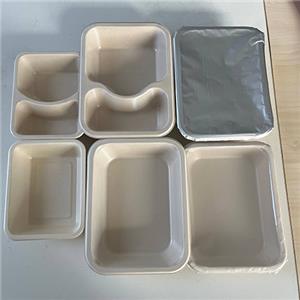The UK Must Act Now to End Plastic Waste Exports: Stopping “Waste Colonialism”
The United Kingdom is at the center of a plastic crisis. Recent figures show the UK generates the second highest amount of plastic waste per capita worldwide, with an estimated 1.7 billion items discarded every week – roughly 90 billion items per person each year.
Alarmingly, more than half of this waste is now incinerated. The incineration rate has risen from 46 percent in 2022 to 58 percent in 2024. Burning plastics not only pollutes air and water but also produces more carbon dioxide per tonne than coal, driving climate change while placing an unequal burden on disadvantaged communities living near waste facilities.
A Recycling System Under Pressure
Only 17 percent of plastic waste is currently recycled in the UK. The existing domestic infrastructure simply cannot cope with the growing volumes of waste. Instead of facing the problem, the UK has long chosen a more convenient but harmful option: exporting plastic waste overseas.
The Reality of “Waste Colonialism”
In June 2025, UK exports of plastic waste to Asia spiked – with 3.3 million kilos sent to Indonesia and 6.8 million kilos to Malaysia. Significant volumes were also shipped via EU countries such as the Netherlands, Germany, Spain and Belgium, often ending up in non-OECD countries lacking proper waste management systems.
These shipments are often framed as “recycling” or “trade,” but the reality is stark: much of the exported plastic is dumped, burned, or handled in unsafe and polluting conditions. Workers and nearby communities – including children and refugees – are exposed to toxic fumes and hazardous chemicals, as seen in Türkiye and Malaysia. At the same time, imported UK waste clogs limited recycling capacity abroad, leaving local waste uncollected and worsening pollution.
This practice is increasingly described as “waste colonialism” – wealthy nations shifting the costs and dangers of their waste onto poorer countries.
A Policy Gap and an Opportunity
The Department for Environment, Food & Rural Affairs (Defra) has previously suggested a full ban on plastic waste exports by 2027, alongside commitments to reduce plastic use, improve recycling rates and build a circular economy. However, while the new Labour Government has spoken about a “circular economy,” it has not yet committed to an outright ban on exports.
This delay leaves a crucial policy gap. If the UK is serious about meeting its commitments under the Global Plastics Treaty, it must act now to end plastic waste exports.
What Needs to Change
To address the crisis effectively, several urgent steps must be taken:
Stronger reduction targets for single-use plastics, particularly supermarket packaging. Eliminating plastic wrapping on unprocessed fruit and vegetables by 2030 would be an important milestone.
Adequate funding for regulators to combat waste crime and fraud within the PRN/PERN system.
Investment in domestic recycling infrastructure, rejecting polluting “false solutions” such as mass incineration and chemical recycling, while ensuring transparent waste tracking so the UK manages its own plastic waste at home.
The UK Must Lead, Not Lag
The EU has already banned waste exports to non-OECD countries under the revised Waste Shipment Regulations. Nations such as Thailand and Indonesia have closed their borders to foreign waste. If the UK continues to delay, it risks losing international credibility and falling behind on environmental leadership.
Ending plastic waste exports is not only a domestic necessity – it is a global responsibility. Now is the moment for the UK to stop “waste colonialism” and move towards a truly circular economy.
Our Position
As a manufacturer of eco-friendly tableware and packaging solutions, we understand the urgent need to reduce the world’s dependence on plastic. By using renewable resources such as sugarcane bagasse, kraft paper, and starch-based materials, we design and produce biodegradable and compostable packaging that helps businesses and consumers transition away from single-use plastics.
We believe building a circular economy requires not only government action, but also industry innovation and consumer choice. That is why we are committed to providing sustainable, cost-effective alternatives for the food packaging industry, making eco-friendly options accessible to all.
Banning plastic waste exports is the critical step the UK must take. Supporting green packaging solutions is the responsibility we can all share. Together, we can replace harmful plastics with sustainable alternatives and protect our planet for future generations.




